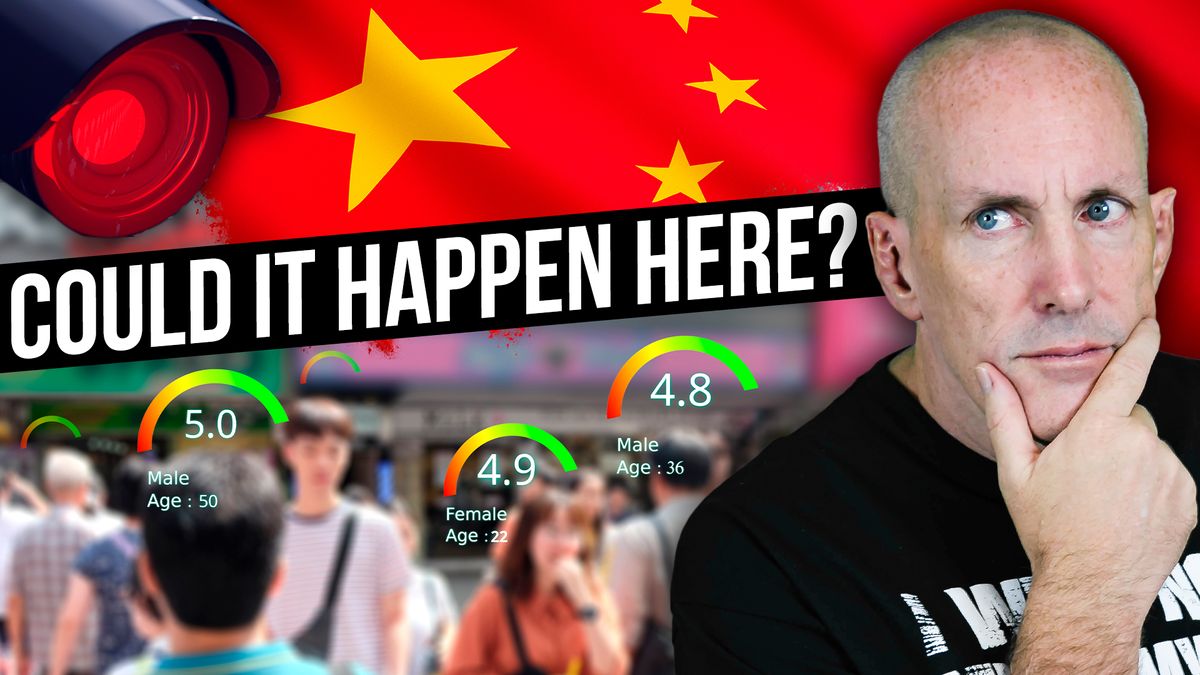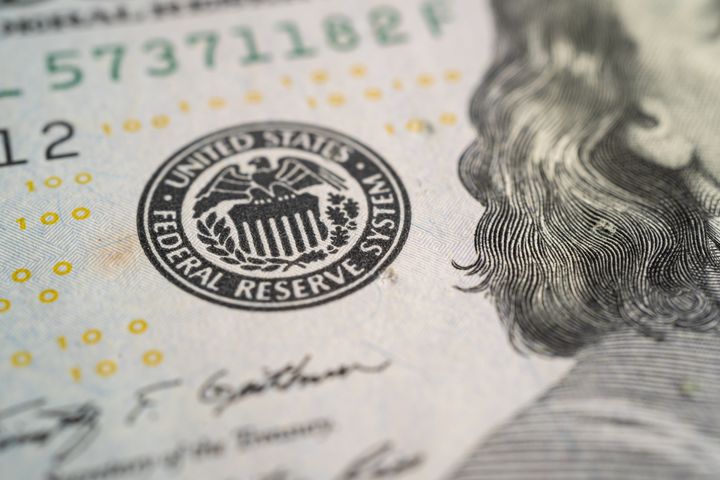Can a social credit system perfectly shape an imperfect society?

If you let a superpower like China speak about it, a social credit score sets moral criteria to judge citizens’ behavior and trustworthiness. So, when you get caught jaywalking or committing a mistake to others, you could lose some privileges and rights like traveling by train or booking a flight.
It sounds like a reality game show, as with Big Brother, “Nosedive” episode of Black Mirror, or a Netflix survival series called “Squid Game.” These fictions share a common denominator: to satisfy the rules of the masses under 360 surveillance. You'll get denied some social privilege when you get a low credit score. Or worse, you’ll lose some of your fundamental rights.
But is it fair for you to live like a caged bird? Hence, it is a shame that this social credit system remains unspoken, and this article aims to discover it. We will unveil China’s social credit system by identifying how it works, affected people, and what stakes it could offer in the long run.
China’s social credit system: An overview
The People’s Republic of China is the world's most populous country. Where enormous market demands come from thousands of local government units, the Chinese Communist Party initiated a moral ranking system that helps monitor the behavior of its citizens and ranks them according to their “social credit.”
The idea of social credit comes up with a “rating” or “score” as to how private financial companies operate and assess a customer’s information in a credit-style scoring. In layman’s terms, good deeds constitute additional points, as bad actions decrease your ranking.
Moreover, China’s social credit system's birth originated in 2007. Seven years later, the Chinese State Council released the “Guidelines of Social Credit System Construction (2014-2020),” outlining the so-called basic social credit system to be enforced in 2020.
The plan initially analyzed the relationship between individuals and businesses, social interactions, and judicial administrations. Hence, it aimed to expand the idea to all aspects of life by enforcing rewards and punishment.
Now, how does it work?
How does the social credit system work?
The idea of a social credit system was unique at first. It was a bit complicated when it was introduced to operate as a “decentralized” system. Instead of having a unified social credit system, the State Council empowers local governments to have their own social records system that works differently.
To better understand the social credit system, consider three different aspects: the data collection method, enforcement, and reward-and-punishment mechanism.
Data Gathering and Collection
Three government pillars manage the databases — the National Development and Reform Commission (or China’s economic planner), the People’s Bank of China (PBOC), and the country’s court system.
They gather data based on primary sources like criminal and governmental records, financial statements, records from registry offices, and third-party sources, such as online credit platforms.
The Chinese government also collects secondary resources, such as real-time data transfers, emission data from factories, and video surveillance. Hence, both data from individuals and corporations are monitored for credit score ranking.
Enforcement
Each individual and corporation acquires a compiled score after a series of collecting, aggregating, and analyzing data from different sources.
Both local and foreign business entities must submit tax payments, bank loan repayments, and employment disputes are needed for credit score assessment. More importantly, they must submit information on their partners and suppliers to local and national authorities.
Here, the enforcement is described as a “net” — a good credit score can be influenced by high trustworthiness, good behavior, and ratings from suppliers and customers.
Local government units are also subject to the corporate credit system. In this case, they must submit their recent financial activities to check the trustworthiness of paying contractors on time or have their data fabricated.
So, what happens with the outcomes of the credit score system?
Reward and Blacklisting Mechanism
Here comes the reward and blacklisting mechanism.
When you get a good rating, it allows you some privileges that only high-ranking credit scores would experience. For instance, you can enjoy priority health care or deposit-free renting of public housing some government local units offer. You may also apply to some job openings, enjoy exclusive travel privileges, and get discounts on energy bills.
Companies with good credit scores can expand their target market and eventually cater to more customers and potential partners.
However, individuals and business entities with low credit scores suffer from “blacklisting.”
The People's Court of China maintains a list of “shixin” or dishonest people who default on judgments. People on the list are prevented from accessing “non-essential consumptions” like loan agreements, access to education, quality internet speed, and dating sites.
The worst is having a person’s identity shamed in public.
Additionally, corporations being blacklisted could also face higher inspection rates and target audits, rigid investment permits, and low approval rates of land-use rights. What’s worse, corporations get prevented from enjoying preferential policies, such as subsidies, tax rebates, and restrictions on public procurement.
Why has China set up a social credit system?
The core goal of China’s social credit system is to improve the enforcement of legal and administrative rules. To some extent, there are existing laws addressing food safety scandals, workplace safety issues, wage arrears, noncompliance with contracts, and court orders. However, the enforcement was lenient, allowing offenders to repeat the offense again and access other provinces.
That’s why the Chinese government enabled a country-wide, centralized information system that let all business entities acquire a “unified social credit code.” At the same time, citizens also have a unique identification number — all accessible and linked to the government's permanent record.
The social credit system was meant to synchronize and share data between private agencies and local government units. It also coerces repeat offenders into compliance and builds alternative means of financial credits to micro-enterprise businesses.
Ultimately, this entire social credit system is all about trust, but who can we trust, and to what extent can trust be measured?
Unspoken Shame: Denial of Social Freedom and Privacy
The development of a centralized social credit system is still ongoing. In other words, there’s no unified social credit system today.
A lot of data being collected gets little protection. Too, there’s no algorithmic transparency about how it’s analyzed to split out a score or ranking. Being said, there’s a massive disparity between provinces regarding their development of corporate social credit, and indeed, social credit in general.
With all the internal developments, the water is also tested in China, leaning towards an autonomous surveillance state — controlling the content on the digital web, building a country’s national firewall, and monitoring and censoring social media.
Aren’t these marks of digital authoritarianism? Why does the Chinese government have to crack down on some posts criticizing the government on social networks and VPNs? Does a step towards a “virtuous citizenry” amounts to total submission of a person’s social rights for tyrannical policy?
These obvious red flags are screaming the unspoken shame of the Chinese’s social credit system: a strong denial of social freedom and privacy to accord to and satisfy the moral ranking system. There's a denial of freedom of speech and coercive interference with a person's privacy.
But whose morality to judge trustworthiness should be followed? Nonetheless, the government itself.
We can observe a blunt irony here when the government serves its interests, by measuring observable behavior that could be positively evaluated. The face of morality is subjective and absolutely manipulates the results, and the method of governance is applied.
The tendency is there will be lesser political engagements freely participated by citizens during elections or expressing their dissent against a local or national issue. Similarly, every move counts, both in the virtual space or outside mobile devices, as if the state fully controls a citizen’s entirety.
Some people may see the social credit system as “fireworks” — Beautiful. Fascinating. Unique. But little did we know that it suspends, fading the sparks in ephemeral.
Conclusion
A public policy stands in favor of the public interest. It helps maintain the relationship of both public and private entities to deliver sustainable and harmonious outcomes. Since we live in an organically changing society, achieving a perfect world is idealistic.
China's Social Credit System only manifests how a superpower state upgrades its political ambitions. Considering market demands are gradually increasing, the Chinese government responds to the challenge by regulating a person's activity through a moral ranking system.
Being idealistic is positive. But the problem with dystopian paradigms, like this social credit system, allows you to keep far from reality. The Chinese government could work closely on a grassroots level. Instead of infringing a person's privacy through 360 surveillance, they could have passed laws answering directly to its problems.
Not unless there's a deeper agenda to follow, right?




